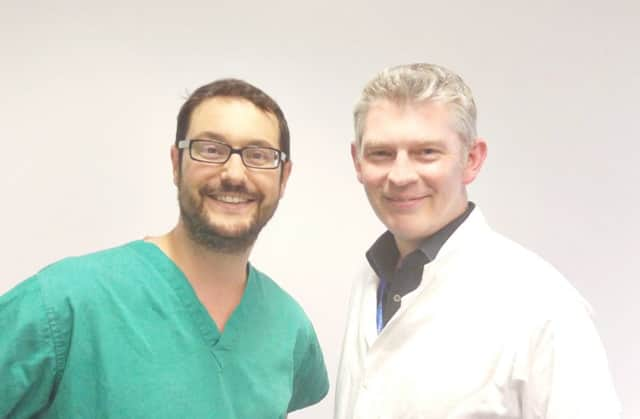Scots medical researchers make skin cancer '˜breakthrough'


A study by the University of Dundee and the Beatson Institute in Glasgow aimed to increase understanding of what drives the condition.
The rate of cutaneous squamous cell carcinoma (cSCC), a potentially devastating form of the disease, is rapidly rising and has more than doubled in Scotland over the last 20 years.
Advertisement
Hide AdAdvertisement
Hide AdIn order to gain a fuller picture of the processes driving cSCC, the research team examined the cell type from which they originate.
By genetically sequencing human tumours, they were able to demonstrate inactivating mutations of two genes, TGFBR1 and TGFBR2, occurring at relatively high frequency.
Functional analysis of these mutations revealed that they commonly impair the effects of TGF-aplha signalling, a key tumour suppressor pathway in skin cells.
Dr Gareth Inman, of the University of Dundee’s School of Medicine, said: “Less is understood about the specific mechanisms that drive the formation of this particular form of skin cancer.
“Ultimately, the effect of this is a restricted number of treatment options that are available for patients with advanced forms of disease. We are really excited about our latest data, which indicates that the inactivation of TGF-alpha signalling may be a common early event in the formation of human cSCC and that some of these cancers may originate in specific stem cell compartments.
“With these intriguing insights into the biology of this disease we are hopeful - through future investigations - that we can make significant strides towards defining future novel therapeutics, to the benefit of patients.”